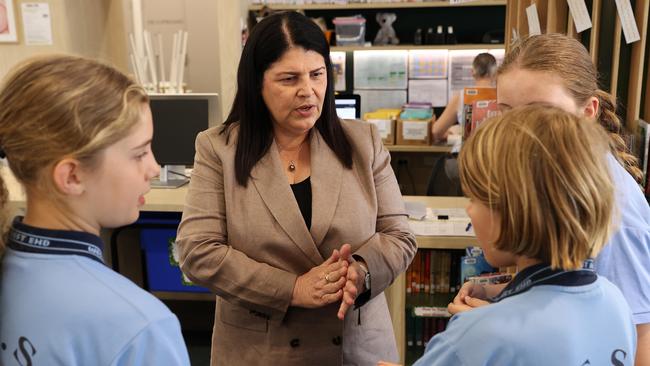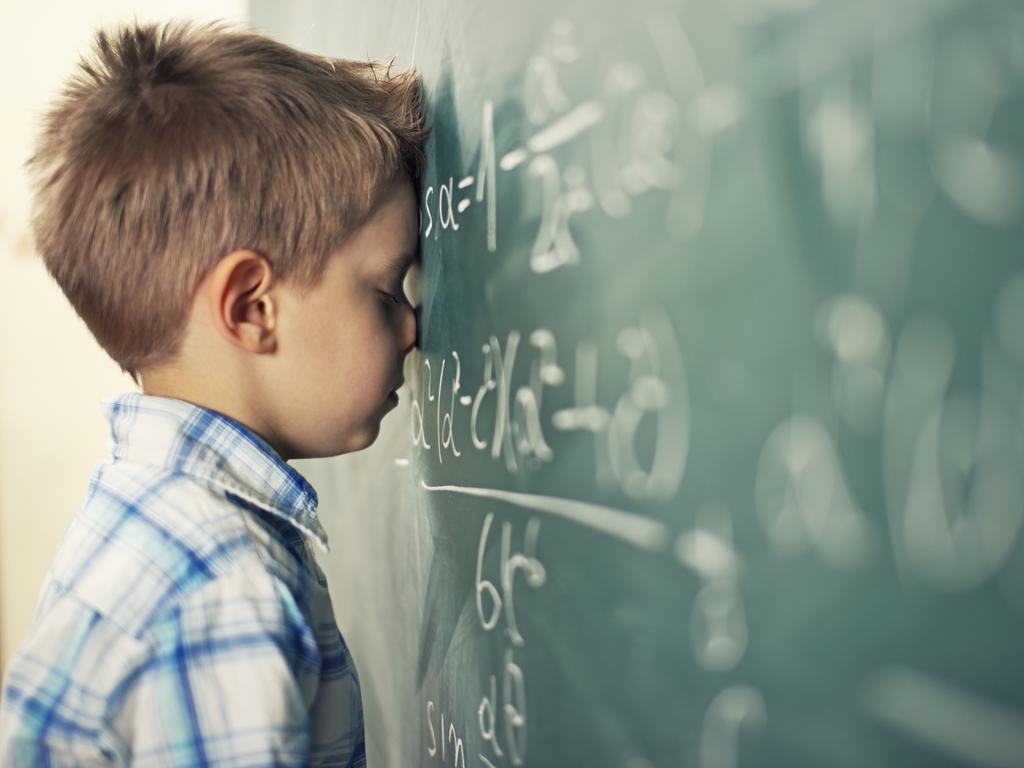Public schools score bonus funding to help struggling kids
There is a ‘bit of argy bargy’ over who will pay for reforms to find more public school teachers and improve student wellbeing.

Public schools are set to share in at least $2.3bn in bonus federal funding over the next three years to assist struggling students, as state governments fight for even more money.
Federal Education Minister Jason Clare will meet state and territory education ministers in Sydney on Monday to kick off negotiations for the next National School Reform Agreement, which will tie taxpayer funding to schooling improvements for the next five years.
For the first time, student wellbeing will be included, along with improved attendance and academic outcomes. The wellbeing measure will require states and territories to boost numbers of school counsellors, psychologists, speech pathologists, nurses or doctors in schools.
As a condition of funding, states and territories will have to provide catch-up remedial tutoring for the one in three students who failed to meet minimum standards in this year’s NAPLAN (National Assessment Program – Literacy and Numeracy) tests.
Mr Clare said schools must help students who have fallen behind. “Early identification and intervention is critical,’’ he said on Friday. “The next step is to provide that additional support, and that’s what the (reform agreement) will be all about.’’
Queensland Education Minister Grace Grace on Friday said all states agreed on the need to find more teachers, improve student wellbeing and improve “excellence and equity’’, but needed more federal funding.
She said states wanted the federal government to lift its share of funding of public schools from 20 per cent to at least 25 per cent – which would cost Canberra an extra $4.7bn extra over the next three years.
“There’s a bit of argy-bargy on who’s going to put that money into that,’’ Ms Grace said. “We (state schools) carry the burden of vulnerable and disadvantaged students, students with a disability and First Nations students.
“They (the commonwealth) put in 20 (per cent of funding) but we reckon they should go to 25.
“I don’t know whether (Mr Clare) is necessarily happy to go to that extra 5 per cent.’’
Victorian Education Minister Ben Carroll said Victoria had done more than any other state or territory to increase its own recurrent funding to state schools.
“We are continuing to advocate for the commonwealth to increase its funding by 5 per cent to ensure that Victorian government schools are fairly and fully funded,’’ Mr Carroll said.“All students - no matter their circumstances – deserve the best start in life and to attend a great school.’’


West Australian Education Minister Tony Buti – a former high school teacher with a doctorate in law, who was the first in his family to study beyond year 10 – also called for more funding, saying education was the only way for children to climb out of poverty.
“I understand the power of education,’’ he said. “Your economic future is largely determined by your education right now … we do need to really focus on how we can stop the decline (in educational standards).’’
Mr Clare is understood to have offered to lift the federal contribution to 22.5 per cent of public school running costs – the equivalent of $2.3bn over three years. A spokesman for Mr Clare refused to comment on the funding deal.
The Northern Territory, the worst-performing school system, with large numbers of poverty-stricken Aboriginal students in remote areas, will be offered an even bigger share of federal funding.
The Australian Council for Educational Research has warned that half of Australia’s 15-year-olds fail to meet baseline standards in maths, while 43 per cent cannot read to the standard expected. The OECD’s Program for International Student Assessment testing of teenagers in 81 nations found Australian 15-year-olds are performing at a level one year behind students who took the test 20 years ago.
Public schools nationally are funded to just 87.3 per cent of the Schooling Resource Standard – the money needed to meet a school’s basic running costs.






To join the conversation, please log in. Don't have an account? Register
Join the conversation, you are commenting as Logout